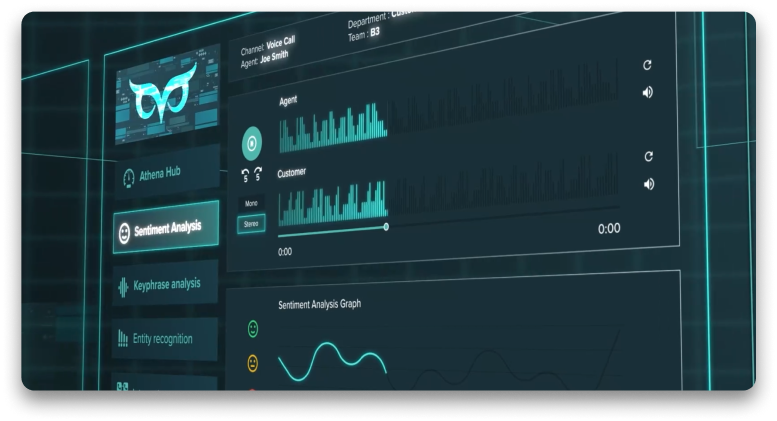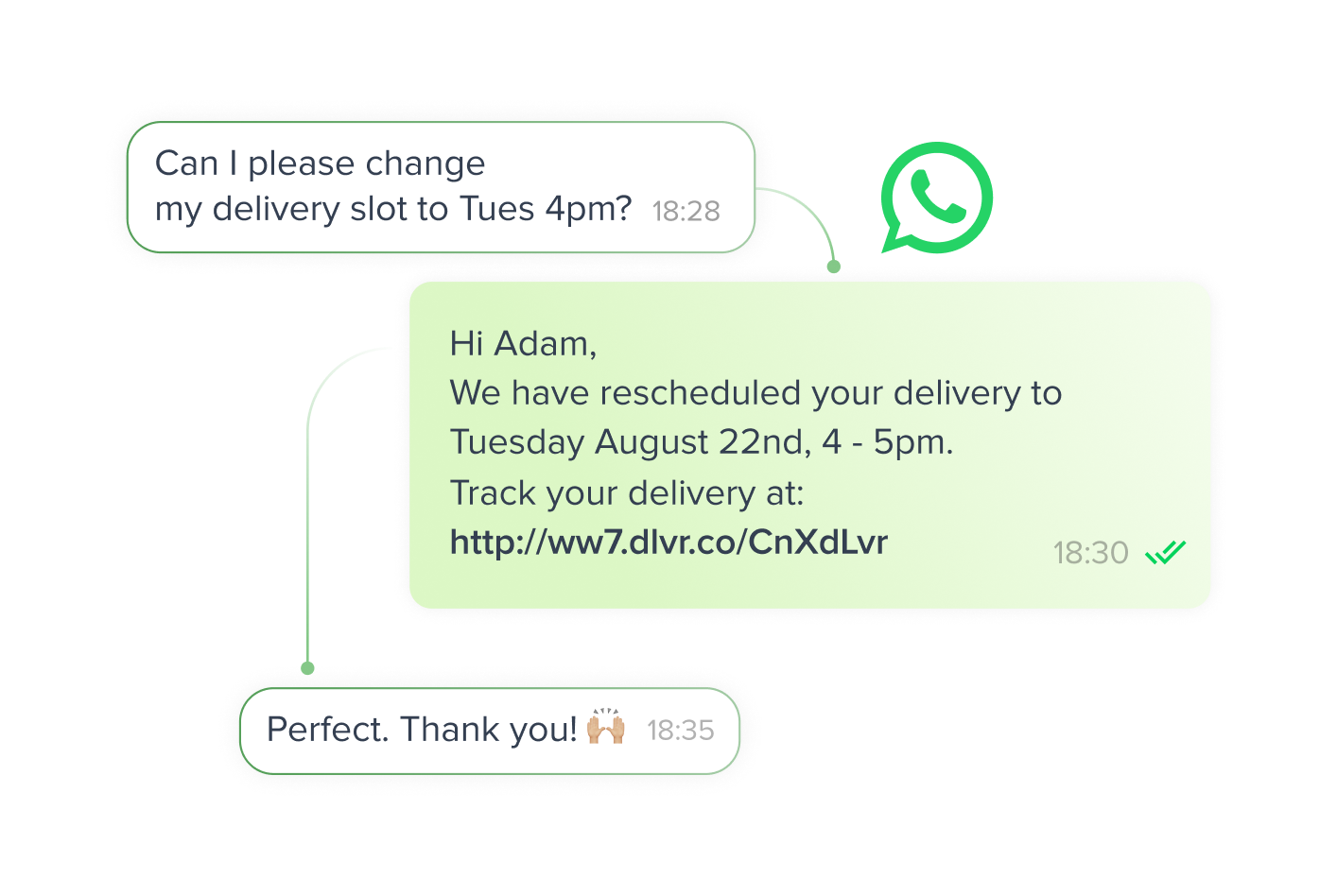WhatsApp is ranked today as the world’s most popular instant messaging app, with over two billion active users worldwide.
What was once known as a pure communication app among friends and family has now become an attractive business feature, offering an improved customer journey and experience.
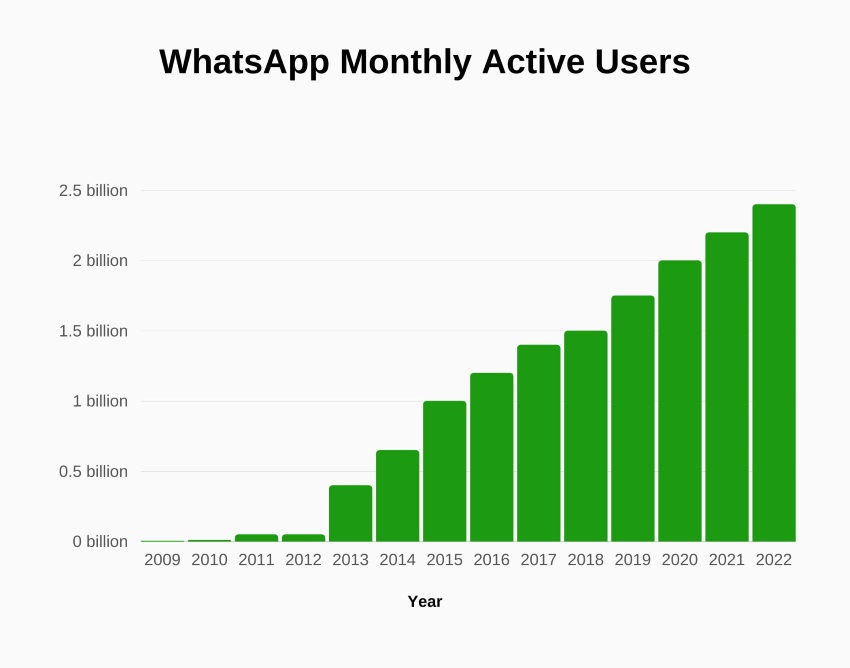
With more than 100 billion messages sent through WhatsApp every day, the app is quickly becoming the preferred platform of communication for both personal and business use.
How WhatsApp for Business Works
In 2017, one year after WhatsApp became fully encrypted, it launched a new feature – the WhatsApp Business Application.
This feature allows businesses to create their own business profile on WhatsApp for free and then add WhatsApp ‘contact us’ buttons or links to their online pages and social media profiles (e.g. a website or Facebook page).
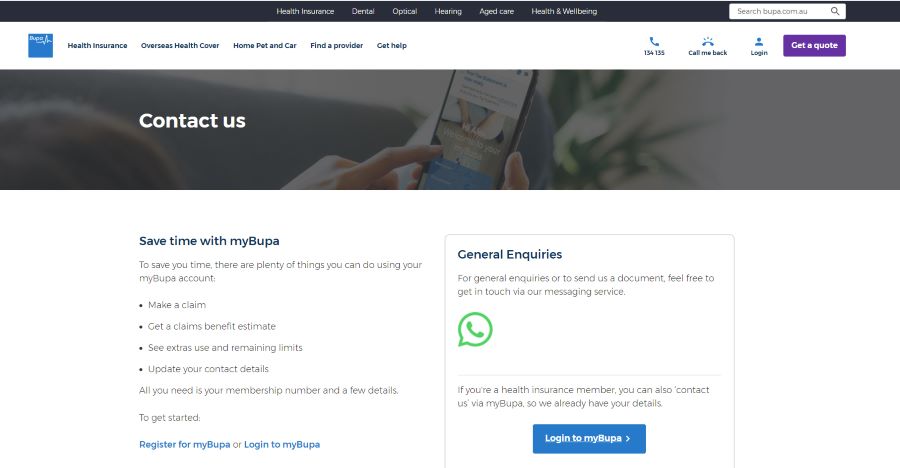
Businesses can also use WhatsApp Business to set up autoresponders for new customer messages and link their landline numbers with WhatsApp for any calls through the platform.
This feature quickly became a great benefit to small and medium enterprises, enhancing their customer relationship management by opening up a more convenient channel for customer interactions.
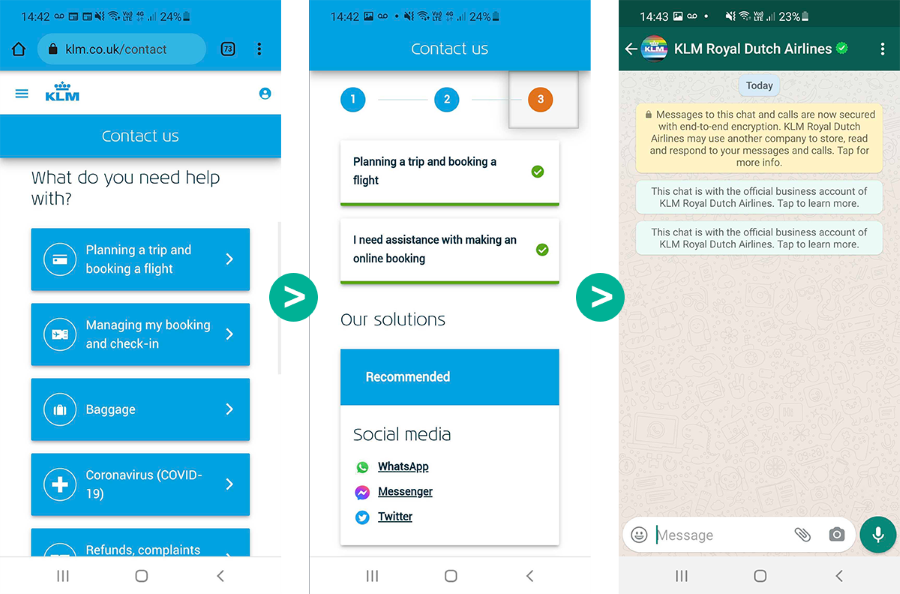
Soon after the launch of the WhatsApp Business app in 2018, the company launched the WhatsApp Business API for enterprise communications.
But what is the difference between the WhatsApp Business app and the WhatsApp Business API?
WhatsApp Business vs. WhatsApp Business API
Despite their similar names, the two applications have significant differences in features and functionality.
WhatsApp Business is a free platform that caters to the startup and small business crowd, offering essentials like messaging, analytics, and profile management. It’s a fantastic starting point for small businesses stepping into the world of WhatsApp-driven customer service.
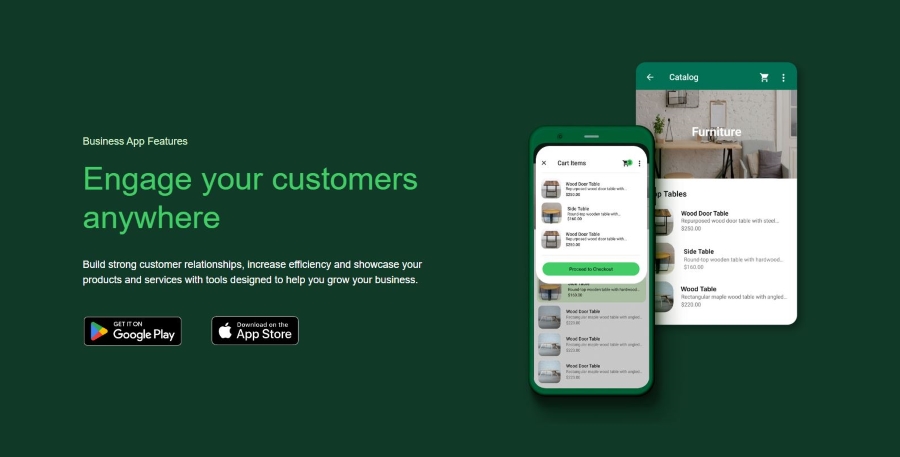
On the other hand, for enterprises seeking advanced features, the WhatsApp Business API emerges as the superior choice. This API seamlessly integrates with existing CX and CRM systems, automates customer messaging, and puts the power of custom chatbots at your fingertips.
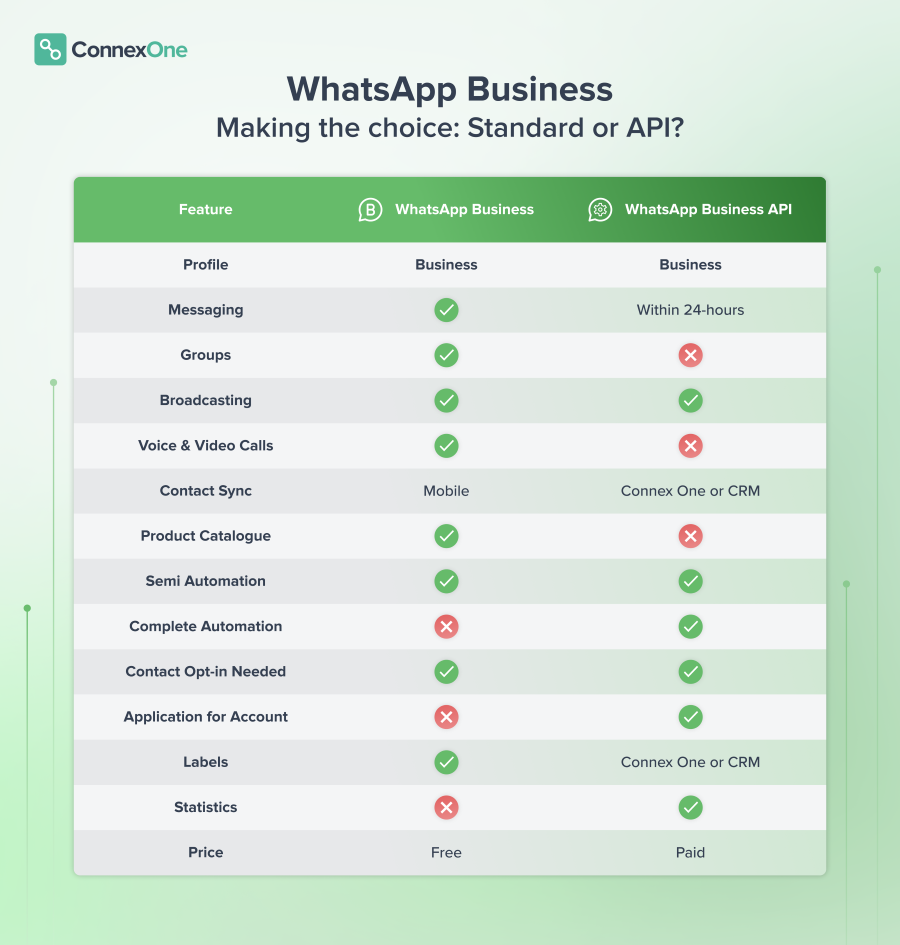
Why Enterprise Businesses are Choosing the WhatsApp Business API for CX
There are many reasons why enterprise businesses are integrating the WhatsApp Business API into their existing customer service infrastructure.
Here are a few of the top reasons:
Advanced Messaging Capabilities
WhatsApp Business API allows businesses to send and receive more complex messages, such as rich media messages, location-based messages, and voice messages. This allows businesses to provide more engaging and informative customer experiences.
Shared Team Inbox
WhatsApp Business API supports a shared team inbox, which allows multiple team members to collaborate on customer messages. This can help businesses to provide 24/7 customer support and ensure that customers receive timely responses.
Automated Efficiency
Automation is at the forefront of the WhatsApp Business API benefits. By automating routine interactions, businesses free up resources for more intricate tasks, ensuring customers receive swift and accurate responses.
Chatbots / Conversational Bots
WhatsApp Business API can be used to create custom chatbots. Chatbots (aka Conversational Bots) can answer customer questions, provide customer support, and even sell products. This can help businesses reduce the workload on their customer service agents and improve the efficiency of their customer service operations.
Integration with CRM systems
WhatsApp Business API can be integrated with CRM systems and CX platforms. This allows businesses to track customer interactions across multiple channels and provides a single view of the customer, enabling them to provide more personalized and efficient customer experiences.
Customer Engagement platforms that utilize omnichannel functionality, such as Connex One, have successfully integrated WhatsApp messaging into their communication channels, allowing businesses to create seamless customer journeys that make full use of the app’s messaging features.
6 Ways to Utilize WhatsApp for Enterprise Customer Experiences
1. Address common customer queries with ease
For many businesses, the majority of customer queries will be common questions or simple requests that can be handled with ease. With the integration of the WhatsApp Business API, connecting with your support teams becomes seamless for customers.
With WhatsApp’s instant messaging at their disposal, customer service teams can promptly share relevant information or valuable resources such as FAQ pages and explainer videos. This dynamic approach ensures quick query resolution, thus elevating customer satisfaction.
2. Collect customer feedback
While advanced AI feedback tools such as sentiment analysis and speech analytics provide valuable granular insights into customer satisfaction, it is important to remember that many businesses can still benefit more from simple customer feedback gathering.
If a company has not yet implemented AI solutions in its customer satisfaction processes, seeking feedback via WhatsApp proves successful due to its simplicity and speed. This approach acknowledges the time constraints customers face and ensures that providing feedback remains painless and convenient.
Using a quick rating scale of 1-5 along with basic details yields valuable insights in seconds, making the feedback process a breeze for enterprise businesses.
Furthermore, the WhatsApp Business API can take this feedback gathering a step further by enabling the generation of advanced analytics and comprehensive reports through CX platforms.
Automated workflows can be implemented to gather all feedback scores from chats and forward this data to custom reports, enabling easy reporting of customer feedback.
3. Real-time order updates and instant notifications
In the realm of customer satisfaction, transparency is paramount. When dealing with time-sensitive orders or services prone to changes, the WhatsApp Business API becomes an invaluable tool. By integrating it, customers receive timely updates on their orders with ease.
Businesses can also use the WhatsApp Business API to share real-time updates on estimated arrival times or request essential journey details (such as directions for drivers or preferred drop-off points).
Furthermore, customer teams can also use WhatsApp messaging to share tracking links, allowing customers to independently monitor order or delivery progress without the need for multiple messages.
Proactively disseminating information not only mitigates potential frustrations but also empowers customers to make necessary rearrangements. Businesses can also utilize the WhatsApp Business API’s adaptability to send billing notifications, appointment reminders, and images of delivered parcels.
4. Seamless booking processes
Imagine a scenario where all booking-related information resides seamlessly in one central hub, allowing customers to bid farewell to rummaging through SMS or wading through email chains for key travel details or documents. This is the reality that the WhatsApp Business API can help businesses create for their customers.
Let’s take flight bookings as an example. Customers prefer to receive boarding passes on their mobile phones and no longer need to print out booking information. However, the real difference lies in having all your booking information centrally located. Booking information for flights and travel can now be delivered all at once, seamlessly via WhatsApp.
For sectors grappling with high-volume surges of inbound customer calls, SMS or emails, responding to all customer requests through various channels can be very hard to achieve, and failing to keep up can have a negative effect on brand reputation.
By centralizing all communications and information sharing via WhatsApp, businesses can provide a seamless experience for customers on one channel and gain a competitive edge.
5. Providing 24/7 support – 365 days a year
For customer messages or requests outside of business hours, businesses can set up auto-responders or chatbots for WhatsApp interactions, which can detect the key contents of customers’ messages and provide the most appropriate response for their queries.
Regardless of time zones across the globe, integrating Chatbots with WhatsApp through a CX platform will enable businesses to be available 24/7 with the ability to reply with automated responses.
If chats require more complex answers, using a CX platform with omnichannel functionality can improve levels of service by smoothly enabling the redirection and escalation of chats to a live agent where necessary.
6. Stop, Pause, Engage – Working on customer’s time
When it comes to contacting a business, customers often cite long waits for live chat responses and being held in phone queues as their biggest inconveniences and pain points.
With frustrated customers frequently abandoning call queues after a long wait or ‘timing out’ in live chats before an agent can reach them, many businesses are missing out on valuable opportunities to engage with their customers and quickly resolve their inquiries.
WhatsApp chats are a much more flexible communication option for customers, as they can start, pause, and revisit message threads with no loss of communication. WhatsApp combines the digital aspect of email with the immediacy of a phone call, offering the best aspects of both channels.
By integrating the WhatsApp Business API into CX platforms, conversations can easily be revisited and picked up again as they are linked to customer profiles and not logged as general support tickets.
Providing customers with the ability to stop or pause conversations as they board transportation, enter important meetings, or simply step away from their devices can be a huge win in improving satisfaction rates for your business’ customer service delivery.
The Benefits of Integrating WhatsApp in Customer Engagement
Customer Experience teams across multiple industries have experienced vast improvements in performance by integrating the use of WhatsApp Business features into their existing CX processes, including faster resolution times for customer queries and reductions in wait times.
According to Brian Bvundura, Global Head of Business Development at Connex One, integrating WhatsApp communication is proving incredibly useful for many enterprise businesses:
“Our clients have seen huge improvements after implementing WhatsApp communication through the Connex One platform. Allowing customers to communicate with them via the messenger app of their choice rather than directing them to phone lines or emails has significantly increased customer satisfaction for many businesses.
“Many customer teams have also seen resolution times improve dramatically, as the flow of information is much faster and flexible than with traditional communication channels.”
CX platforms like Connex One utilize the WhatsApp Business API to integrate with your existing CRM solutions, such as Salesforce – bringing all customer interactions and data into one system and improving customer service with increased functionality. In addition, rich media content such as videos, images, or documents can be easily sent to customers instantly, allowing them to receive a wider variety of information on demand.
To unlock the power of WhatsApp for Business in your customer communication, get in touch with our team at hello@connexone.co.za or request a free demo of our CX platform here.
